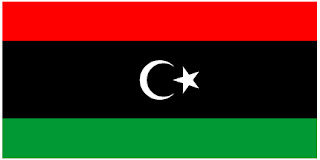(The ICRC Customary International Law Study - a wonderful piece of work.)
Rant Mode: ON (You have been warned.)
Words matter. Names matter.
And that is why is why I'm always so annoyed with the
ICRC's insistence on using the term "
International Humanitarian Law" (IHL) when referring to the Law of Armed Conflict (LOAC). The principal (& principled) problem is that as a term IHL is dangerously close to International Human Rights Law (IHRL), inviting comparison, conflation and breeding confusion. It is true that some eminent commentators - e.g. Professor Philippe Sands QC - have characterised the two bodies of law as twins separated at birth, raised by mutually antagonistic parents. This is fair enough as both legal cannons emanate from a well-spring of humanitarianism, designed to protect people from the arbitrary predations of States and the powerful; but they are distinct.
And distinct for a reason. Human Rights Law is universal and applies at all times; these are, after all, universal minimum guarantees. The 1948
Universal Declaration of Human Rights (UDHR) enumerates the fundamental rights of people worldwide (even if there were UN members which routinely violated the UDHR's requirements in 1948 - e.g. colonial rule, apartheid, or slavery). Numerous national, regional and international human rights instruments have been added (e.g. the
International Covenant on Civil and Political Rights (ICCPR) in 1966, the
Convention on the Elimination of All Forms of Discrimination against Women (CEDAW) in 1979; the
African charter on Human and Peoples Rights from 1981) which together with some Courts - notably the
European Court of Human Rights (ECtHR) in Strasbourg - have transformed the rights of people worldwide by enunciating them and providing redress (however patchy and imperfect.) This is a proud history and a firm foundation for building a better future.
(The rather wonderful companion to the red book, above.)
The Law of Armed Conflict (LOAC), however, is of a fundamentally different form. First and most importantly, LOAC can by definition only apply during conflict; simply, it is legal to kill an enemy combatant in wartime when killing the same person in peacetime is called murder. Second, as
lex specialis (special law relating to specific circumstances), LOAC replaces the existing law for the period in which it is applicable where the two conflict. Third, specific and different rules apply for International Armed Conflicts (IACs) and Non-International Armed Conflicts (NIACs). Finally, LOAC has large elements that predate the Treaties and exist under
Customary International Law which the ICRC attempted the thankless task of pulling together it the Customary Law Study (the red book at the top of the post) - a good piece of work, being improved with the current update, and is especially rewarding when read in tandem with Chatham House's critique (the blue book).
(Not a pizza)
Any attempt to merge the two is like comparing an apple with a pizza; they are both about rights, but their form and function is entirely different.
So when the ICRC as the guardians of the central LOAC
treaty-based legislation (Geneva Conventions I - IV from 1949 and the two Additional Protocols to the Conventions from 1977) tries to broaden the scope of the Conventions by extending the scope of NIACs down from insurgencies where insurgents hold territory and operate a chain of command to civil unrest and riots*, problems are inevitable. The most obvious is that as
lex specialis, applying LOAC to civil unrest would actually reduce the protection of human rights, as LOAC overrides the human rights protections.
(Libya's new-old flag: today's protesters are using a variant of the old Royalist flag from pre-1969)
Applying this notion in situations in Libya today could have the following legal effect: by replacing human rights law with LOAC, instead of treating Libyan protesters as civilians engaged in awe-inspiring demotic civic dialogue, who have, amongst other things, the right to life, liberty and security of person under UDHR Article 3, the civilians could be treated as rebel combatants and legally killed as long as there was a military advantaged gained by doing so. When Col. Gaddafi promises to
"die in Libya" then it's reasonable to assume that such a legal position would remove what little restraint still exists on the use of force. As bad as things are in Libya, they could be much, much worse if the survival of the state legally allowed essentially unlimited use of force against protesters.
Thus to suggest that LOAC and IHRL are the same thing is bonkers, as it serves to reduce protections and increase the incentive for oppressive regimes to go for broke. Madness, in my humble opinion.
So, a plea for clarity. LOAC is LOAC because it covers armed conflicts - and IHRL covers peacetime. The names help remind us of this, and makes for better policy.
Rant Mode: OFF
*This is a serious and separate problem. Fortunately, Chatham House are conducting an experts' working group on the
Classification of Conflict which I'm looking forward to reading in due course.






